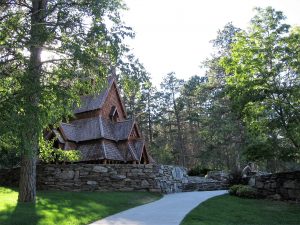A song for pilgrims ascending to Jerusalem. A psalm of David.
What if the Lord had not been on our side? Let all Israel repeat: What if the Lord had not been on our side when people attacked us? They would have swallowed us alive in their burning anger. The waters would have engulfed us; a torrent would have overwhelmed us. Yes, the raging waters of their fury would have overwhelmed our very lives (124:1-5 NLT).
Psalm 124 is the fifth of the Songs of Ascent. They were composed for people going to Jerusalem for the three required feasts during the old covenant. As the heading indicates, David wrote this song. His love for the true and living God overflowed to help the worship of God’s covenant people. In our time, people have mainly lost their ability to sing. People will listen to others perform music, but they lack desire to sing. We have become passive in our emotional expressions. It should not surprise us to see people emotionally manipulated by those who produce music. David wrote to improve and enhance the worship of the Lord by his people.
His song has structure; it pushes its participants to move through the muck and mire of their experience to the Lord God. But it does not do this in a balanced way. This might upset the analytic or clinical mind that likes everything in neat orderly packages. But David writes about life, which is anything except neat and orderly, and he writes about God who reveals himself as greater than the wild messes of our lives.
The psalm can be outlined in this way:
- Presence of the Lord during trials (124:1-5)
- Protection by the Lord (124:6-7)
- Praise to the Lord (124:8)
So then we see that David lets us linger in our problems for over half the psalm before he reminds us of how God has rescued us, which in turn he develops into a call to worship.
Let’s speak plainly. None of us want to slowly review our trials. We want them way behind us in the rear view mirror. After I recovered from a heart attack, I wanted to get on with my life as quickly as I could. I was very thankful for how God preserved my life, but once rescued, it was time for other things. Then I had to have bypass surgery a year later, followed by another time of recovery, and more desire to move on. A couple years later, I did move on, but not as I expected! My point is simply that we want to get out of painful and unpleasant situations and get on with whatever. David did not do that. He wanted the pilgrims on the path to remember where they had been and what the Lord had done for them.
Like many psalms, it is unclear what troubles David and Israel faced. Perhaps he pointed to the early years of his reign. He could truthfully say it was a time when people attacked us. Benjamin and the other ten tribes refused to bow to David’s God-given kingship, and a mini civil war lasted for about seven years. That was bad enough, but there were also problems from the Philistines, Israel’s archenemy for many years during the leadership of Samson, Samuel, and Saul. David inherited those enemies when he became king, and he had his own hand in stirring the pot, when he supposedly defected to the Philistines and then was kicked out by them when they went to fight Saul. When the Philistines heard that David was king over all Israel and not merely the tribe of Judah, they decided that they must strike hard against David and Israel (2 Samuel 5). It was a dangerous time for David and his people. He had to flee to his stronghold to get into a defensible position. (God expects us to use our common sense.) Then David rightly asked God what to do. (God expects us to pray. He wants us to welcome him into our problems.) And in two different ways, God gave David and Israel victory over their enemies.
So in this Song of Ascent, David reminded the worshipers of the crisis they had passed through. What if the Lord had not been on our side? Let all Israel repeat: What if the Lord had not been on our side when people attacked us? By repetition, he helps Israel recall the dangers they had been in. During what dangers you’ve faced have you experienced that God was on your side? Remember the following great word. What, then, shall we say in response to these things? If God is for us, who can be against us? (Romans 8:31 NIV)
Grace and peace,
David

 Luke 1:26-28
Luke 1:26-28 Ruth 2:8-9
Ruth 2:8-9